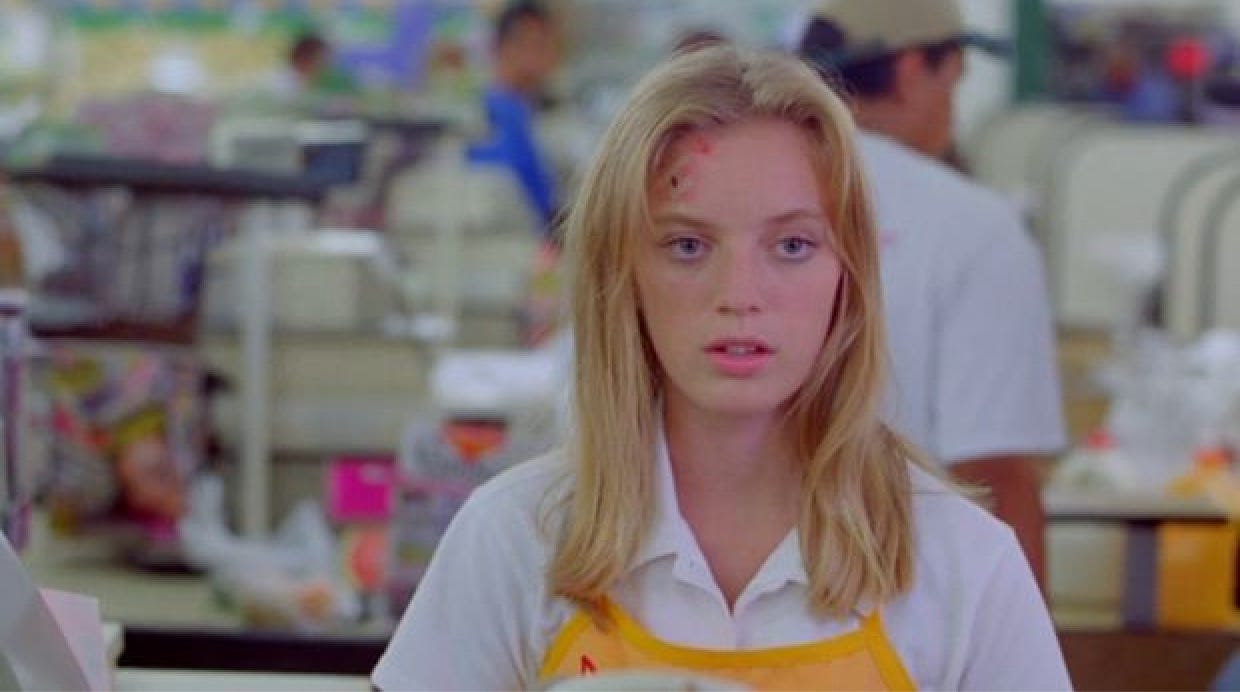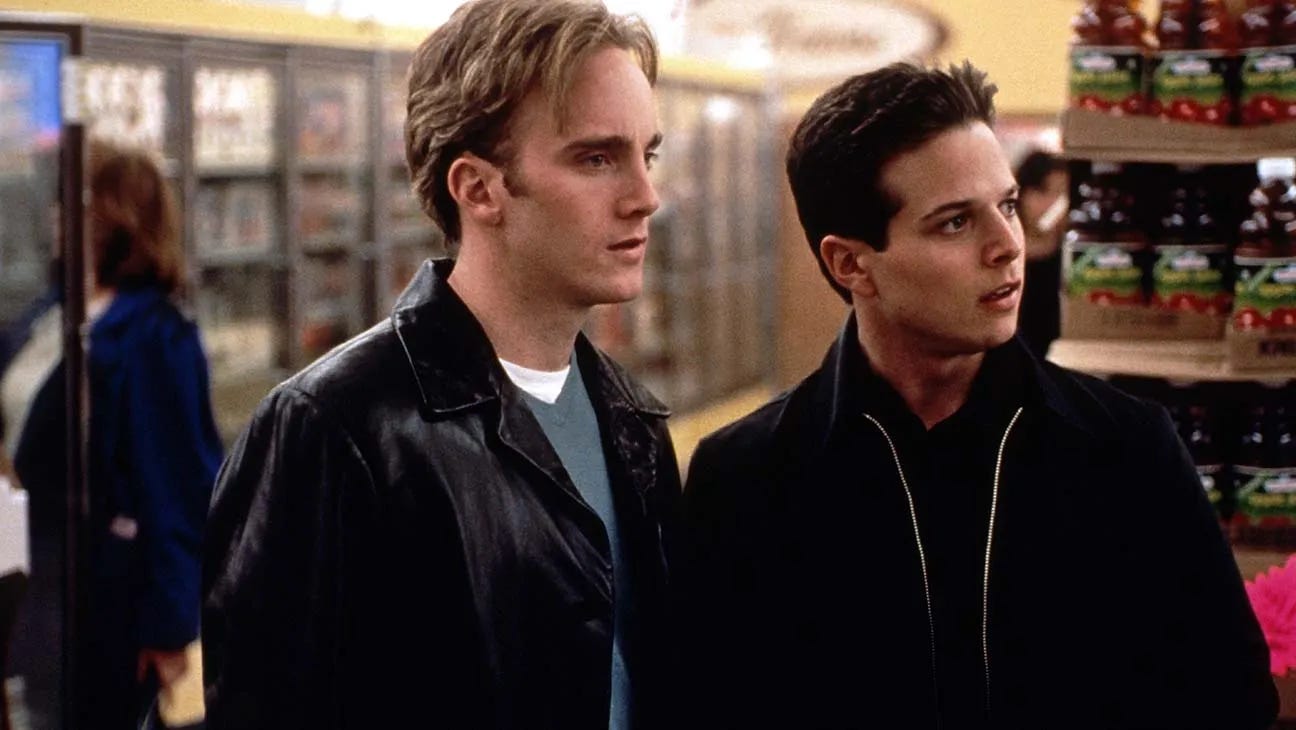The New Cult Canon: 'Go'
With his 'Road House' remake hitting Amazon this week, it's a good time to look back on Doug Liman's superior twist on the 'Pulp Fiction' knock-off.
“It really didn’t go as bad as it could have.”
“A girl is dead, Zack.”
“I didn’t say it went perfectly.” — Adam and Zack, Go
Between 1994, when Quentin Tarantino’s Pulp Fiction electrified Cannes and went on to become a pop culture phenomenon, and 1999, the year Doug Liman’s Go zipped in and out of theaters to reasonable acclaim, here are just some of the knockoffs that aped Tarantino’s film to lesser (and often shameless) effect: Things to Do in Denver When You’re Dead, 2 Days in the Valley, Destiny Turns on the Radio, Suicide Kings, The Big Hit, 8 Heads in a Duffel Bag, Very Bad Things, The Boondock Saints, Truth or Consequences N.M. While it’s true that Tarantino could not claim ownership over ‘90s crime comedy—the Coens, for two, would like a word—and that few attempted to replicate his structural wizardry, an the influx of undeniable, interchangeable wannabes trafficked in glib chatter and stylized violence without a sliver of the wit or dramatic pop.
And so when Go came out, sporting an overlapping three-story structure and a young cast of current and future who’s-whos, it had to push through of skepticism and fatigue, because the world certainly didn’t need another movie like it. Director, Doug Liman, had made Swingers three years earlier, which was a charming-enough calling card for its writer/star Jon Favreau and his breakout screen partner, Vince Vaughn, but not exactly reassuring for anyone worried about hip attitudinizing. Indeed, a certain neophyte film critic, in his first year as a staff writer for The A.V. Club, praised “the visceral impact” of Liman’s direction and John August’s “ingeniously structured” script, but ultimately chucked Go in the same bin: “While far more ambitious, skillful, and vivid than the current rash of teen comedies, Go is just as hollow at its center.”
For 25 years, I’d been reluctant to revisit Go, because I had a sneaking suspicion I was wrong about it, just as I’d been reluctant to revisit a film I praised the same year, American Beauty, for the same reason. (I explained my reversal on the latter two years ago in a Reveal piece called “Sam Mendes: What’s the deal with this guy?”) And while my inevitable turnaround on Go isn’t quite as dramatic—I had praised it as a cut above its ilk, after all, and I’m still not convinced that it’s more than a monument to its own cleverness—there’s something acutely embarrassing about spending over 20 years with documented evidence that I thought American Beauty was a better 1999 film than Go. That the Academy of Motion Picture Arts and Sciences felt likewise is cold comfort.
Much like Liman’s Swingers, however, Go does feel like a calling card movie, right down to the literal calling card on the poster, which states rather oddly that “life begins at 3 a.m.” despite a time stamp in the movie that reads 8:04 p.m. after its heroine has already purloined pharmaceutical-grade ecstasy from a drug dealer for resale to a couple of strangers. The main talent being sold here, aside from the smattering of Brat Pack 2.0 hopefuls in the cast, is screenwriter John August, who would parlay the film’s positive reception into gigs writing the first two Charlie’s Angels movies for McG and three straight scripts for Tim Burton—Big Fish, Charlie and the Chocolate Factory, and Corpse Bride. (He also wrote and directed the 2007 cult favorite The Nines and is more recently the co-host, with Chernobyl and The Last of Us writer Craig Mazin, of the excellent screenwriting podcast Scriptnotes.) It’s not entirely fair to think about Go as the sort of lively sample a young writer might slip under an agent’s door, but the film’s considerable pleasures are mostly surface-level. As my friend Noel Murray once wrote about Carlito’s Way in a Top 10 piece in the student newspaper: “Strictly by the numbers. But oh what numbers!”
Keep reading with a 7-day free trial
Subscribe to The Reveal to keep reading this post and get 7 days of free access to the full post archives.





